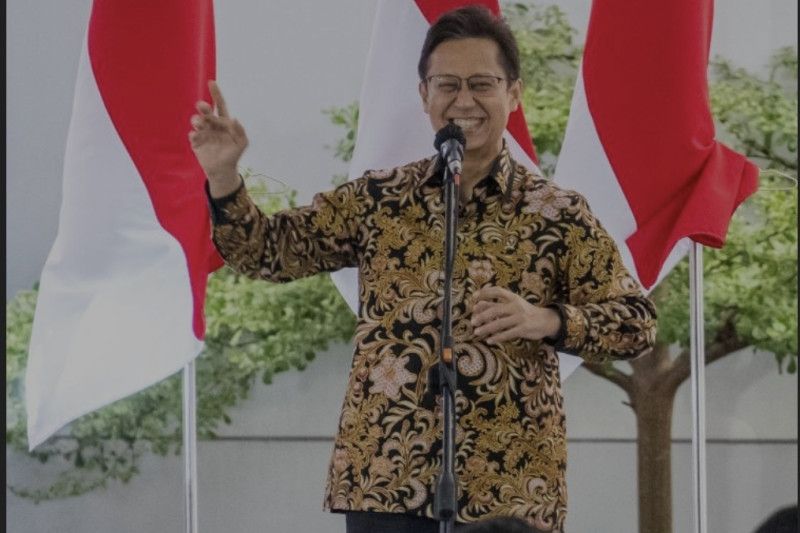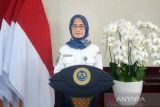
Archive--Health Budi Minister Gunadi Sadikin attends the inauguration of PT Etana Biotechnologies Indonesia in Jakarta on Friday (October 7, 2022). (ANTARA/HO-Health Ministry/uyu)
Currently, it (the fundraising for the FIF) has reached US$1.4 billion.Indonesia expected that a formal mechanism to establish equitable health service access for developed and low-income countries could be agreed at the 2nd 2022 G20 Health Ministerial Meeting (HMM).
"(Currently), the mechanism is still informal. It is what we (the G20 members) are trying to complete now. There is a team working (on it), led by South Africa and Norway," Indonesian Health Budi Minister Gunadi Sadikin remarked during a discussion titled "Chatting about G20 Health Issues" on Thursday evening.
The 2nd HMM will be held in Bali on October 27-28, 2022, as the continuation of the 1st HMM and Health Working Group meetings organized under the Sherpa Track of Indonesia’s 2022 G20 Presidency to discuss various global health issues.
The minister noted that at the start of the COVID-19 pandemic outbreak in December 2019, developed countries were the first to create and have access to vaccines.
Related news: Health Ministry improves eye care services with Vision Center program
Meanwhile, low-income countries did not have access to either funding or facilities to handle the pandemic.
Hence, the World Health Organization (WHO) and several other international institutions formed the Access to COVID-19 Tools (ACT) Accelerator to address the inequitable access to COVID-19 health technology.
"While the first (HMM) aimed to conduct fundraising, the second meeting intends to discuss how to use the money, especially to maintain fair and equitable access to medicines and vaccines (for all countries)," Sadikin stated.
Earlier, at the 1st 2022 HMM held in Yogyakarta in June 2022, the G20 members had agreed to establish a Financial Intermediary Fund (FIF) as a reserve fund that could be used for pandemic handling in future. The initiative had been approved by the World Bank.
“Currently, it (the fundraising for the FIF) has reached US$1.4 billion," the minister stated.
Related news: Kanjuruhan tragedy: Victim count reaches 754
Sadikin noted that later, other countries and international institutions, such as the Bill & Melinda Gates Foundation, the Rockefeller Foundation, as well as the Wellcome Trust, will also offer their donation to the initiative.
Indonesia has also encouraged the integration of the data of COVID-19 genome sequencing laboratories around the world that can help to identify new variants of various viruses and bacteria.
Moreover, Indonesia attempted to simplify travel standards by using Quick Response (QR) codes in accordance with the WHO standards.
The QR codes contain the travelers’ vaccine certificates, COVID-19 test results, as well as medical history, Gunadi stated.
Related news: SOEs Ministry continuing to consolidate health ecosystem: Thohir
Related news: Ministry outlines COVID-19 procedures for G20 Summit delegates


















